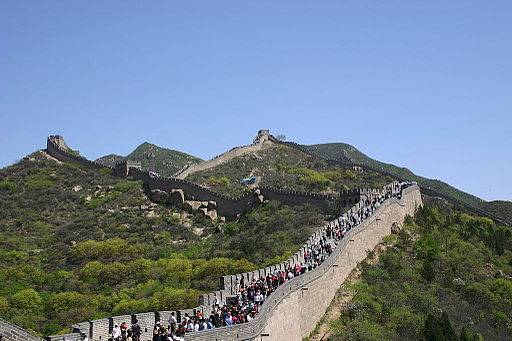Trip To China: How To Budget For It?
Are you dreaming of an unforgettable adventure in the heart of Asia? Planning a trip to China can be an exhilarating experience, but it also requires careful financial preparation. We understand that you’re eager to explore the rich culture, ancient history, and breathtaking landscapes that China has to offer.
To help you make the most of your journey without breaking the bank, we’ve put together this comprehensive guide on how to budget for your trip to China.
Setting Budget Goals for your Trip to China
1. Determine Your Travel Duration
The first step in budgeting for your trip to China is to decide how long you plan to stay. China is a vast country with diverse attractions, so the duration of your stay will significantly impact your budget.
Whether you’re planning a two-week whirlwind tour or a more extended adventure, having a clear idea of your travel duration is crucial.
2. Identify Your Travel Style
Your travel style plays a pivotal role in budget planning. Are you a luxury traveler seeking high-end experiences, or are you an adventurer looking for a more budget-friendly journey? China offers a range of options to cater to different preferences, from luxury hotels to budget hostels and street food stalls to fine dining restaurants.
3. List Your Must-See Destinations
China boasts a plethora of incredible destinations, from the Great Wall and the Forbidden City in Beijing to the terracotta warriors in Xi’an and the stunning karst landscapes in Guilin. Make a list of the must-see places on your itinerary, as this will help you allocate your budget effectively.
Crafting the Budget of your Trip to China
1. Accommodation
Accommodation can be a significant part of your expenses. Research and book hotels or hostels in advance to secure the best deals. Consider staying in a mix of budget and mid-range accommodations to balance comfort and cost-effectiveness.
2. Transportation
China’s vastness means you’ll likely be using various forms of transportation. High-speed trains are an efficient and relatively affordable option for traveling between cities. Local buses and subways are cost-effective for navigating within cities. Don’t forget to include international and domestic flights in your budget if necessary.
3. Food and Dining
Chinese cuisine is famous worldwide, and sampling local dishes is a must. While dining in high-end restaurants can be delightful, trying street food and local eateries can save you money while providing an authentic culinary experience.
4. Entrance Fees and Activities
Plan your visits to tourist attractions strategically to minimize entrance fees. Some attractions offer discounts during off-peak hours or on certain days of the week. Research these opportunities to make the most of your budget.
5. Miscellaneous Expenses
Include a buffer in your budget for unexpected expenses like souvenirs, shopping, and emergency situations. It’s always wise to have some extra funds on hand for peace of mind.
Money-Saving Tips for your Trip to China
1. Travel During Off-Peak Seasons
If your travel dates are flexible, consider visiting China during the off-peak seasons. You’ll find lower prices on accommodations and fewer crowds at tourist attractions.
2. Use Local Transportation
Opt for local transportation options like buses and subways, which are not only cost-effective but also offer a glimpse into the local way of life.
3. Learn Basic Mandarin Phrases
Knowing a few basic Mandarin phrases can go a long way in saving money and enhancing your travel experience. Locals appreciate the effort, and it can help you negotiate prices and navigate more effectively.
Conclusion
Budgeting for your trip to China is a crucial step in ensuring a memorable and stress-free adventure.
By setting clear goals, crafting a well-thought-out budget, and following money-saving tips, you can make the most of your journey without overspending.































































